2016 Calgary, Alberta, Canada

The 2016 first place winners in Southern Alberta’s Caring For Our Watersheds competition were Centennial High School students Kaylee Nishizawa, Rebecca McCollister and Nicole Stringham, with their project “Save The Trees, Use The Trees”
These students were concerned about water conservation and the use of herbicides and pesticides in their community. When researching these issues, the students became interested in the use of mulch on gardens and flowerbeds. Mulch helps inhibit weed growth, retain soil moisture and prevents frost heaving and soil temperature fluctuations. Armed with information on the benefits of using mulch, the students organized a “Community Mulch Day”, where residents could come to the local community centre between 10:00 and 2:00 to pick up free mulch to use on their gardens and flowerbeds.
To encourage people within their community to take advantage of the fee mulch, the students distributed thousands of flyers to residents in their South Calgary community, informing them of the event and of the benefits of using mulch in their yards.
The “Community Mulch Day” was a huge success! Hundreds of citizens came to the Mid Sun Community Centre to pick up free mulch, provided by The City of Calgary. The students were there to provide information on the benefits of using mulch, and to help people load the mulch into their vehicles.
This project was made possible by a number of sponsors, including: Caring for Our Watersheds, The City of Calgary Parks, Greengate Garden Centers, atr and the Mid-Sun Community Association.
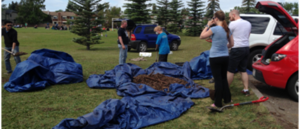
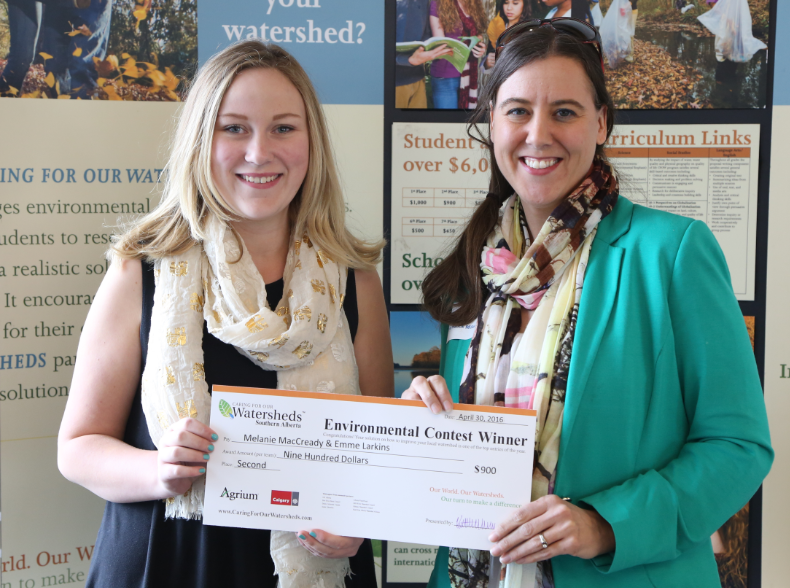 in the 2016 CFOW contest, with their project “St. James Outdoor Classroom”.
in the 2016 CFOW contest, with their project “St. James Outdoor Classroom”.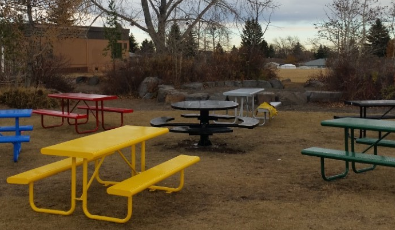 There have been picnic tables, garbage cans and recycling bins installed in the natural learning area, with plans to expand and continue to develop the area with additional natural features in the future. Research has shown that teaching outdoors makes educators more confident and enthusiastic about their work, and more innovative in their teaching strategies. By extension, schools benefit from the leadership and influence of their teachers who take students outside. Studies indicate that students that are given the opportunity to learn in a natural setting often score higher on tests, experience less anxiety and have more confidence.
There have been picnic tables, garbage cans and recycling bins installed in the natural learning area, with plans to expand and continue to develop the area with additional natural features in the future. Research has shown that teaching outdoors makes educators more confident and enthusiastic about their work, and more innovative in their teaching strategies. By extension, schools benefit from the leadership and influence of their teachers who take students outside. Studies indicate that students that are given the opportunity to learn in a natural setting often score higher on tests, experience less anxiety and have more confidence.
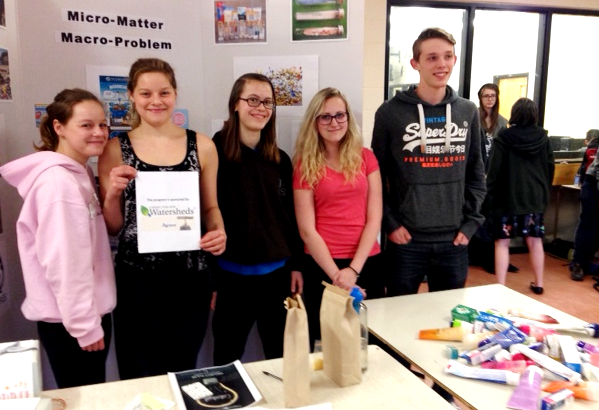 “Microplastics, Macroproblem”. Madeline was concerned about the amount of microbeads and microplastics in consumer products and the impact this is having on our watershed.
“Microplastics, Macroproblem”. Madeline was concerned about the amount of microbeads and microplastics in consumer products and the impact this is having on our watershed.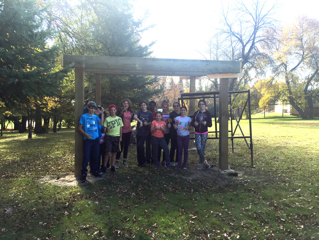 have poor agricultural capabilities and much of the Southern portion of the Cypress River Watershed is considered moderately to severely at risk of soil and bank erosion.
have poor agricultural capabilities and much of the Southern portion of the Cypress River Watershed is considered moderately to severely at risk of soil and bank erosion.
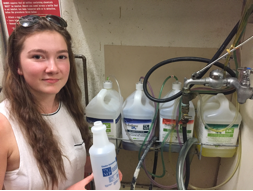
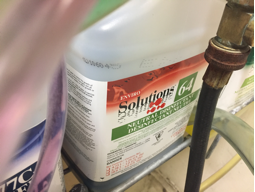 with, I have done the necessary research and I have determined the cost and quantity that my school would need for cleaning. By changing into an eco-friendly product our watershed will benefit and the water quality will improve because there is less chemicals flowing into the watershed.”
with, I have done the necessary research and I have determined the cost and quantity that my school would need for cleaning. By changing into an eco-friendly product our watershed will benefit and the water quality will improve because there is less chemicals flowing into the watershed.”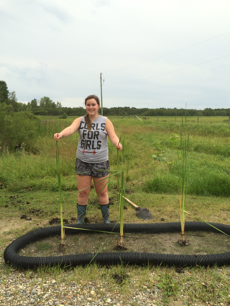
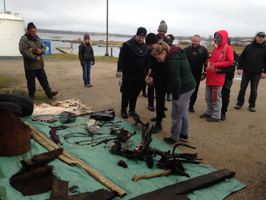
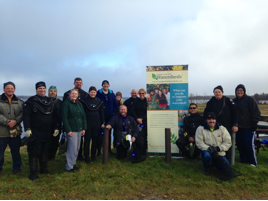 community. The marine life will have more areas to lay eggs, less debris on the lake floor, and have more plant life for the fish to feed on.”
community. The marine life will have more areas to lay eggs, less debris on the lake floor, and have more plant life for the fish to feed on.”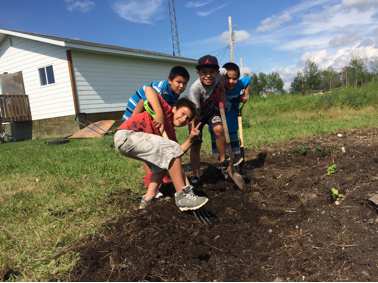
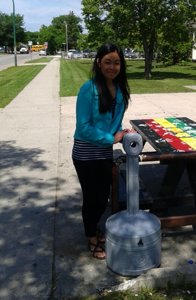 ada
ada